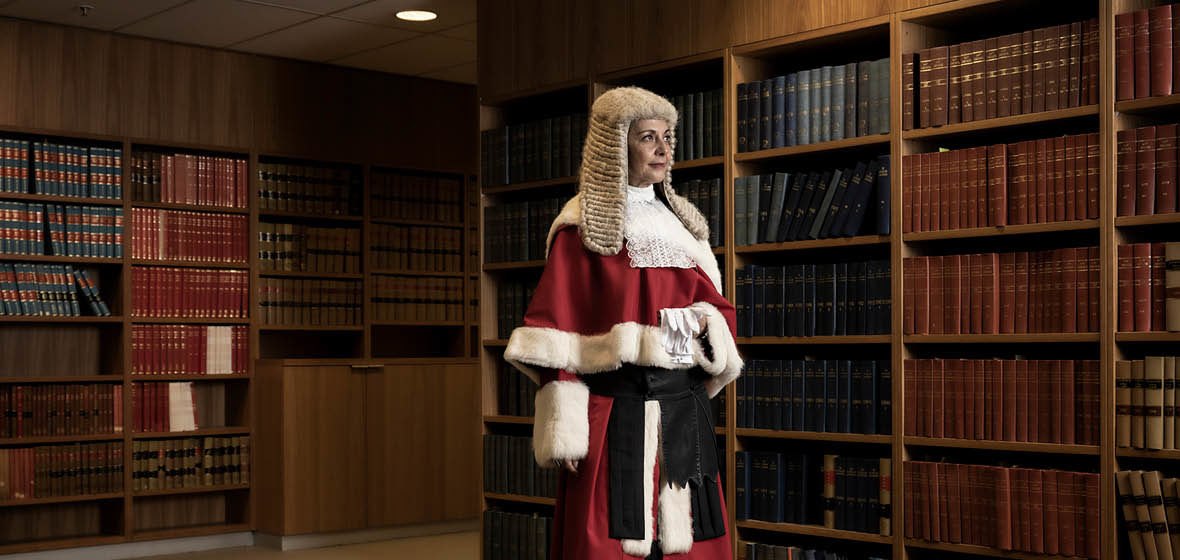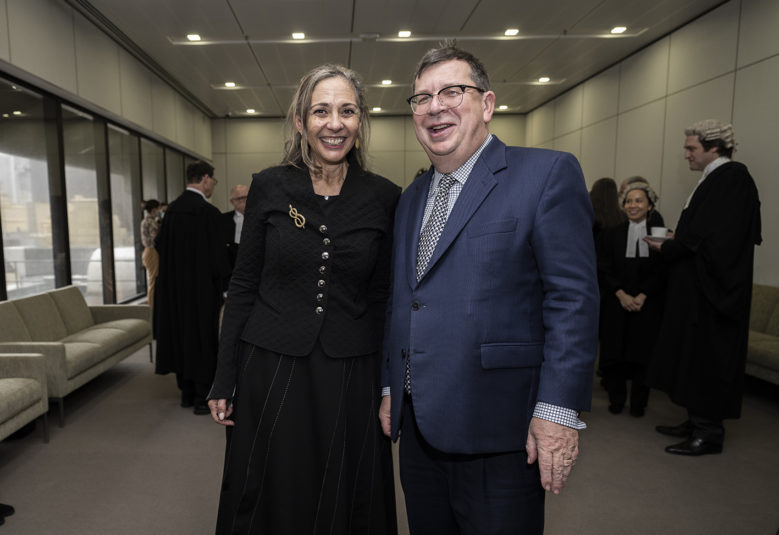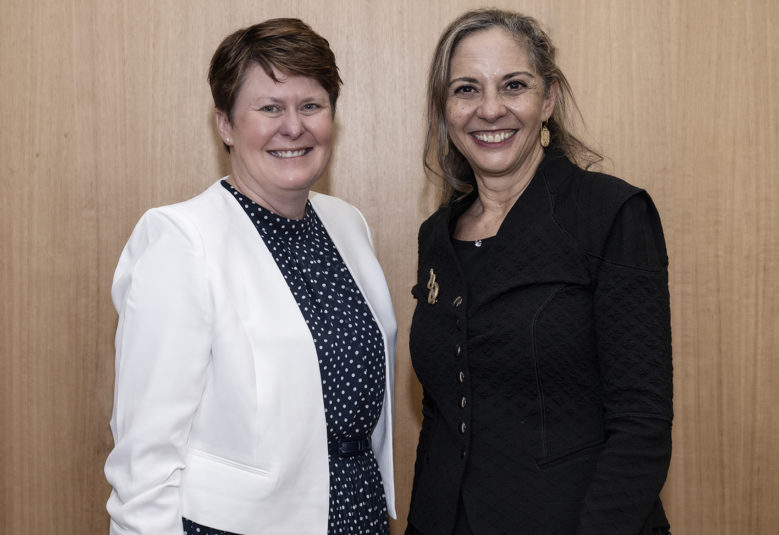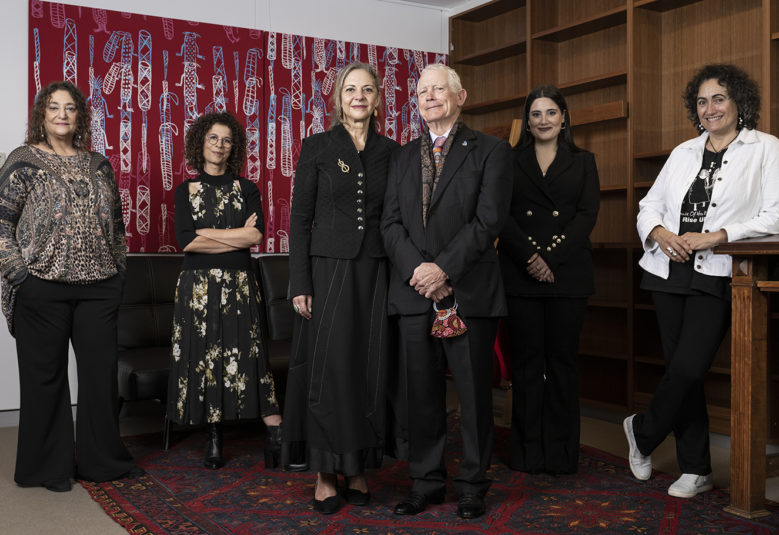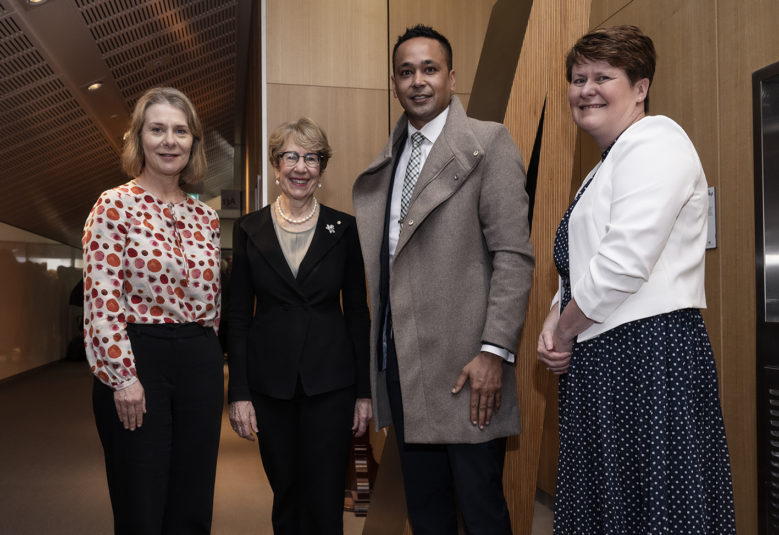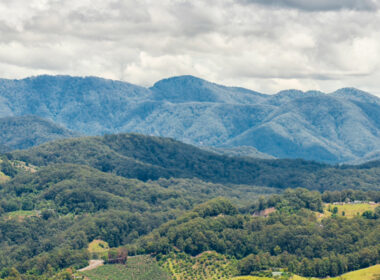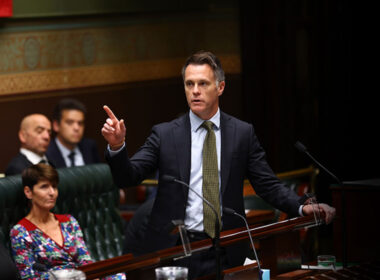Solicitor, barrister, District Court Judge, and now a Supreme Court Justice; Her Honour Dina Yehia took her place on the bench in front of a packed Banco Court on Monday.
Torrential rain and emergency warnings across the state couldn’t dampen the mood as Justice Yehia was sworn in. Her impressive career and amiable character were celebrated with heartfelt speeches from Attorney General Mark Speakman and NSW Law Society President Joanne van der Plaat.
Her Honour, the “driving force” behind the push for the Walama List in the District Court, also gave a powerful address discussing diversity in the profession, access to justice and the moments that shaped her career so far. She told the court the occasion was made even more special for taking place during NAIDOC week.
“While there is much more work to be done, I am proud of our achievements, and I am confident that Walama will continue to prove its value; given the commitment of our elders, aboriginal service unit team, the Walama working group and the judges who will be involved,” Justice Yehia said.
“The disproportionate rate of First Nations peoples in our prisons continues to be a scandal. The high rates of incarceration, inter-generational trauma, lower life expectancy, continuing unemployment and poverty are sources of great shame in this country.
“We, that is non-First Nations people, make up 97 per cent of the population. We bear the responsibility of doing the heavy lifting. We, at the very least, bear the responsibility of engaging in truth telling about our history, and educating ourselves about the rich cultural heritage of our First Nations people.”
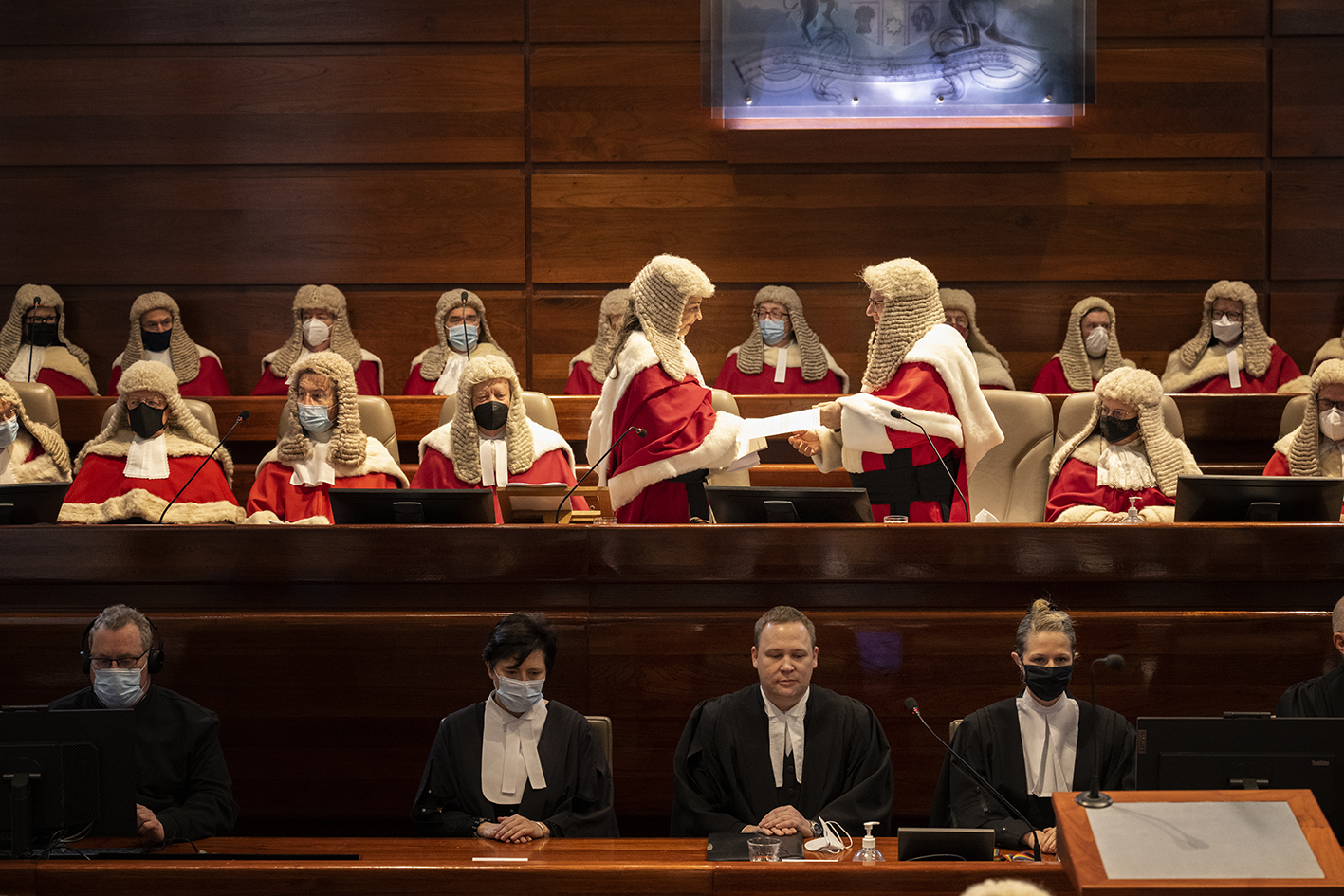
Justice Yehia is the first person of Greek-Egyptian descent to sit on the Supreme Court of NSW and said that upon the announcement of her appointment, she received hundreds of messages of congratulations from people of diverse backgrounds. Her Honour pointed to her arrival in Australia as a seven-year-old unable to speak or understand English.
“As a woman and an immigrant, I encourage diversity in the profession. Diversity on the bench is an essential component of a fair and impartial judiciary. If our institutions are to remain strong and independent, they must reflect the community they represent,” Justice Yehia said.
“Some of you have shared with me your uncertainty about whether you belong in this profession. I hope today gives you some confidence that you do belong. You have much to offer the profession, you bring to it your lived experience your capacity for hard work, your resilience.”
Justice Yehia has been with the District Court since May 2014, and is Chair of the Ngara Yura Committee, which raises awareness amongst judicial officers in relation to Indigenous cultural and social issues. She is also Chair of the Walama Working Group and a Council member of the Australasian Institute of Judicial Administration and the National Judicial College of Australia.
Over her career, Justice Yehia has defended thousands of Indigenous people, presided over complex trials and sentencing proceedings including serious charges of sexual assault, attempted murder, drug supply, importation and fraud.
“As a woman and an immigrant, I encourage diversity in the profession. Diversity on the bench is an essential component of a fair and impartial judiciary. If our institutions are to remain strong and independent, they must reflect the community they represent.”
Attorney General Mark Speakman spoke to Justice Yehia’s rich career in the law, weaving in personal remarks about her Honour’s interests and personality, which sent the Banco Court into occasional fits of laughter.
“You thrived as a Judge, despite the initial strangeness of sitting on the other side of the bench. In your first weeks, so you remembered not to interject in arguments and submissions, you applied post-it notes to your bench with some personal reminders including ‘do not object’, ‘do not interfere’ and ‘shut up’,” Speakman said.
“Your leadership and legal acumen have provided NSW with an innovative and compassionate form of justice to improve the lives of many people.
“Your friends and colleagues have said it is difficult to find enough words to describe your devotion to the law, your intelligence, determination, courage, loyalty, and compassionate.”
NSW Law Society President Joanne van der Plaat commended Justice Yehia’s ability to build relationships by “listening deeply” and placing importance on “silence in communication”. This, van der Plaat remarked, has allowed for the voices and narratives of First Nations people to be heard in the District Court.
“As a young immigrant coming to Australia; as a newly-admitted lawyer crossing the Great Dividing Range; or as a woman of colour ascending to the bench – your Honour’s life has been full of journeys, both literal and metaphorical,” van der Plaat said.
“You have that unique brand of stamina that comes from having once worked out west, accustomed to sleeping overnight on buses, for court appearances featuring up to fifty people in a list.
“Your Honour has an admirable ability to empathise, to see what the law looks like for a people who, as it says in the Uluru Statement from the heart, are ‘the most incarcerated people on the planet’.”

